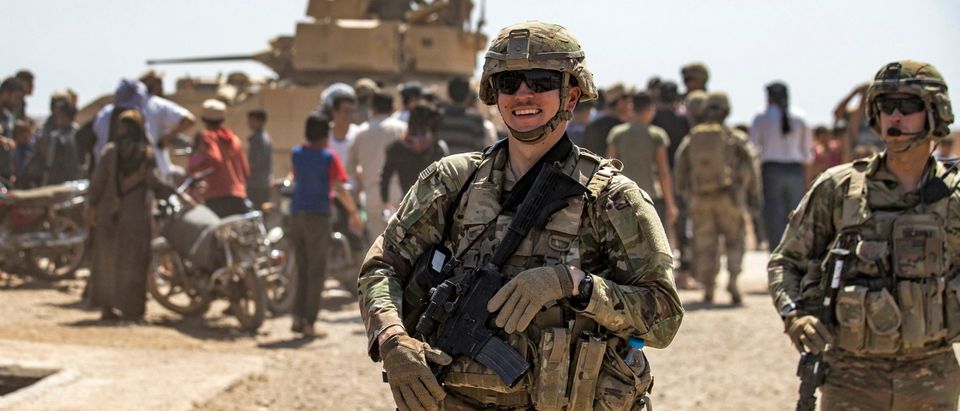A newly-published research paper asserts that more American troops have taken their own lives than have been killed in combat since 9/11.
An estimated 30,177 active duty personnel and veterans of post-9/11 wars have died by suicide, compared to 7,057 who died in combat during the same time period, according to the new study from Brown University’s Watson Institute for International and Public Affairs. The lead author, Boston University’s Thomas Howard Suitt III, asserts that U.S. government response to the plight of veterans is partly to blame for the high suicide rate.
Our new report details factors unique to the post-9/11 era that lead to a rising number of U.S. soldiers taking their own lives, including a combination of multiple traumatic exposures, chronic pain, and public indifference to these wars. See: https://t.co/B6WZVBYCJR pic.twitter.com/MQX72GDX9R
— The Costs of War Project (@CostsOfWar) June 21, 2021
“Post-9/11 wars” are defined as ongoing military operations carried out by the U.S. across the globe since former President George W. Bush declared the war on terror after 9/11. The paper argues that an increased risk of suicide is caused in part by factors inherent to fighting in a war, but also by unique aspects of the war on terror and U.S. government policy.
Suitt writes that the increased use of improvised explosive devices (IEDs) and the accompanying rise in traumatic brain injuries (TBIs), the length of the war on terror, the increased service time made possible by medical advancements and public disinterest in post-9/11 wars have contributed to the substantially higher suicide rate among veterans compared to the general population. (RELATED: US Military Destroying Equipment They’re Leaving Behind In Afghanistan)
“High suicide rates mark the failure of the U.S. government and U.S. society to manage the mental health costs of our current conflicts,” the paper argues.
According to the Department for Veterans Affairs, the age- and sex-adjusted suicide rate for veterans overall is about 1.5 times that of the general population. The rate has also increased by about 1.5 times since 2005, and has gone up 76% among veterans aged 18-34 during that time period.
The paper argues that this is likely an undercount, as the V.A. only tracks federally-activated veterans, leaving out Reservists and National Guardsmen.
TBIs are the “signature injury” of post-9/11 wars, according to Suitt. Veterans who suffer from the “clinical triad” of PTSD, TBIs and chronic pain is strongly correlated with increased suicidal ideation and violence. Suitt writes that this could be a driving factor behind the increased suicide rate among war on terror veterans compared to past generations of soldiers.
The paper also cites “moral injury,” a term encompassing ethical concerns and doubts about actions taken during war, military culture and difficulty returning to civilian life as additional factors. (RELATED: 1,900 US Military Firearms Were Stolen In The Last Decade, Some Were Used In Violent Crimes, AP Report Says)
“Unless the U.S. government and U.S. society makes significant changes in the ways we manage the mental health crisis among our service members and veterans, suicide rates will continue to climb. That is a cost of war we cannot accept,” the paper concludes.


